Have you ever wanted to figure something out so desperately for the good of others, but realize that in order to find the answer you would have to skirt moral, human ethics to incredible degrees?
Welcome to the world of being a scientist. You are always hungry for more information, but have to realize there is a line that you cannot cross when experimenting, especially with human test subjects.
But that doesn't stop 'em from dreaming.
u/illuseyourusername asked:
Here were some of those answers.
Psychopath Through The Ages
 Giphy
GiphyI want to take DNA from infamous serial killers like Dahmer or Albert Fish or the like, clone them, then have the baby raised in a normal, supportive, loving family.
I'd study the kids all through adulthood to see how much is nurture and how much is nature.
There's a guy who did a TED Talk, found out by accident that he has the brain of a serial killer (brain scan). Talked about the character qualities he has that fit the bill, family history and all that.
Your Own Personal Ecosystem
I want to do a long term case study on children's Microbiome. It would start with samples of their mothers microbiome, and then when the child is first born get a sample of theirs, compare it, and continue comparing the two samples throughout breast feeding vs. bottle feeding. Also get a detailed comparison of how the microbiome changes after vaccinations, sickness, antibiotics.
I would basically study every single poop this child has, their eating habits, their health conditions, any medications, vaccinations, etc. for years.
But people want privacy, and most wouldn't want to commit to keeping such accurate accounts of their children's food/health/activities, so it's likely that even if I did this study it would be difficult to prove all variables were accounted for. And with all the variability I would need many, many children.
The end goal is to see how our microbiome changes throughout your childhood, and note when you may be more susceptible to things depending on the type of microflora you have. Everyone has a different ratio, so essentially if we can harness the individuals capability of unique flora we could find a whole new way to tackle illnesses and preventatives for sicknesses that would have significantly less side effects than many other medications.
This idea stems from others studying the microbiome, and finding that certain ratios of microflora can cause you to get over illnesses quicker when combined with the right medicine, and also help digestive tracks regulate better. But so far these tests are being done with cancer patients. I think if we're able to see how children are effected it may bring less possibilities of cancer and other illnesses down the road, as well as a faster recovery time.
Ethics
 Giphy
GiphyI'm a physician and I would love to see how far the Placebo Effect really goes.
For those who are not familiar, the Placebo Effect is an unexplained phenomena where people who take medications that aren't real, but they believe are real, have an actual, measurable effect on their illness. People with depression who take sugar pills report feeling happier. People with pain who take sugar pills report a decrease to their pain etc.
I've seen even crazier ones where people think they are having surgery for their bad knee...but the docs just put them under, make an incision on their knee, do nothing, sew them back up and patients report improvement to their bad knee.
So part of me just wants to explore this to its full extent. Can we treat chronic illnesses like arthritis, lupus and bipolar disorder with just placebos? What about viral illness? Can you imagine if someone's HIV viral load decreased while they're eating Skittles thinking its a new miracle drug?
Call Of The Wild
Experiments with social isolation intrigue me. Raise a child with no language and see what happens. No contact. Wild children give us some insights, but also a sample of the kind of trauma this can produce. Completely and undeniably unethical. Incredibly cruel. But sooooo intriguing!!
Heat Vision
I want to work on genetically modifying the genes that control our active cones in our eyes. Specifically I want to try to activate a tertiary cone in the eyes of dogs so that they can see infared light just like snakes can.
In simpler terms, we could make rescue dogs that have infared vision to help locate missing people or recover people in natural disasters.
In even simpler terms I want to make heatseeking dogs.
In The Way
 Giphy
GiphyI wouldn't say "mad scientist", but medical privacy laws get in the way of a LOT of incredibly useful research. Everything has to be so de-identified and confidential that it makes doing any sort of large-scale statistics nearly impossible. You have to make a ton of assumptions because you can't know many details.
If I had full access to everyone's medical records, we could probably fix a whole lot.
When Mad Lightning Strikes
The typical discovery and clinical testing pipeline of a pharmaceutical looks something like this:
cell culture > rodent models > other animals (primates, rabbits, etc.) > humans
If at any step the drug fails the test (either for toxicity or efficiacy), the potential drug is nixed. And this process of discovery and clinical testing can take up to 10 years at the cost of billions of dollars.
What happens if your model systems can't fully recapitulate the human disease phenotype? So what happens if you've got a drug that might work really well in the human, but we never know, because it gets trashed because there's no response in the mouse model?
Now I completely understand the ethical concerns with testing on human subjects from the get go, but if you asked me to don my mad scientist lab coat and goggles, I'd try to push for earlier testing on human subjects.
Violating The Oath
I'd never do the experiment, but it's hard to overstate how helpful it would be to have large-scale, longitudinal data on how different chemotherapeutic drugs/drug cocktails affect the evolutionary trajectory of tumors.
The problem is that in order to study it, you'd need to:
- Give a large number of people experimental or substandard care, which is highly unethical.
- Perform serial surgeries even when they aren't medically necessary in order to collect tissue samples from the tumors, and since every surgery carries with it some risk this is also highly unethical.
Ichor
 Giphy
GiphyUse the milk from orb spiders (they mix the DNA of orb spiders with goals at U Wyoming) to build a better dental filling. They'd hypothetically last exponentially longer, would bond to tooth as an organic substance, and are stronger that Teflon. It would also be minimally invasive as to set the groundwork for more invasive medical applications such as knee replacements. If you fund me I know the orb goat and dental guys.
Many Moooooooore
I'd like to raise babies in various planned conditions such as:
- Without any adult human interaction
- Without language
- Indoors only
- With different concepts of a family unit
- With different concepts of gender roles
And many more!

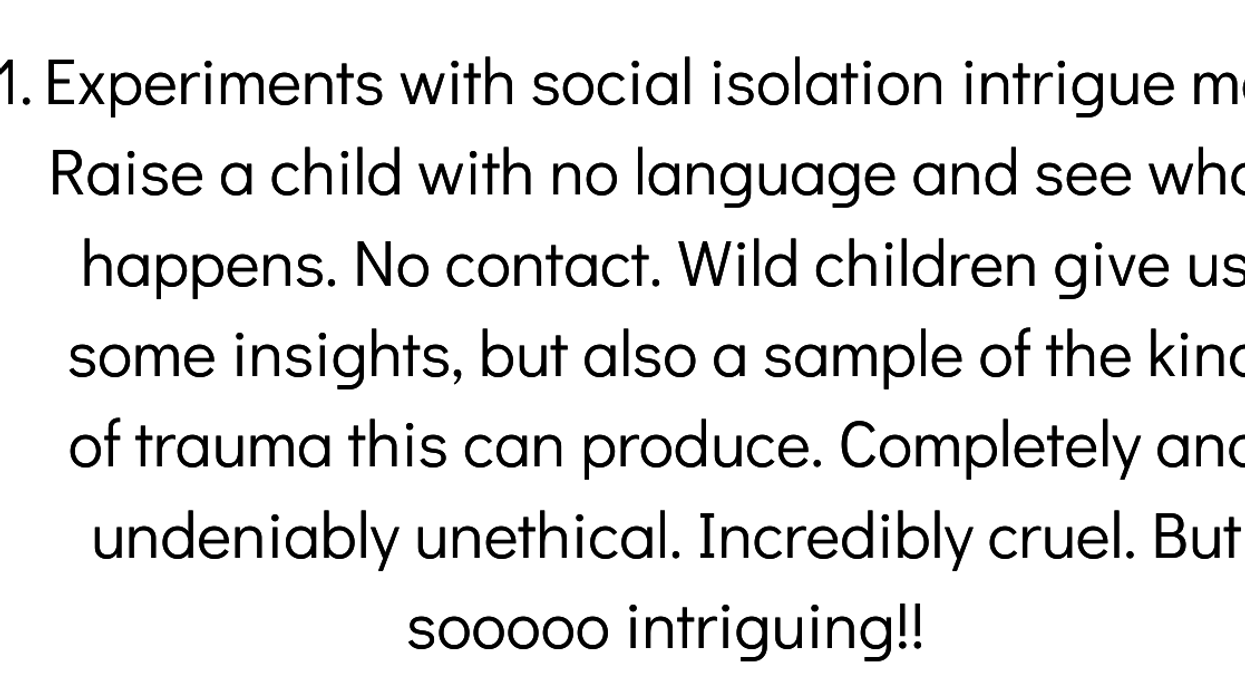












 Awkward Pena GIF by Luis Ricardo
Awkward Pena GIF by Luis Ricardo  Community Facebook GIF by Social Media Tools
Community Facebook GIF by Social Media Tools  Angry Good News GIF
Angry Good News GIF 
 Angry Cry Baby GIF by Maryanne Chisholm - MCArtist
Angry Cry Baby GIF by Maryanne Chisholm - MCArtist 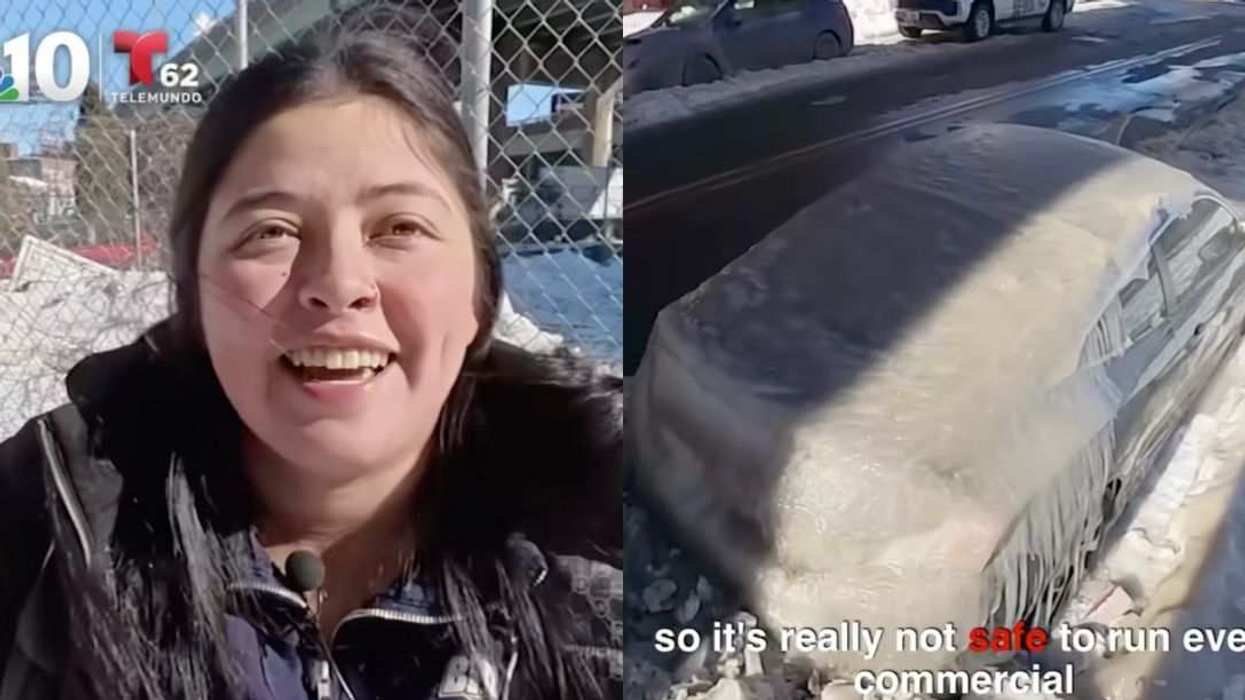
 @adriana.kms/TikTok
@adriana.kms/TikTok @mossmouse/TikTok
@mossmouse/TikTok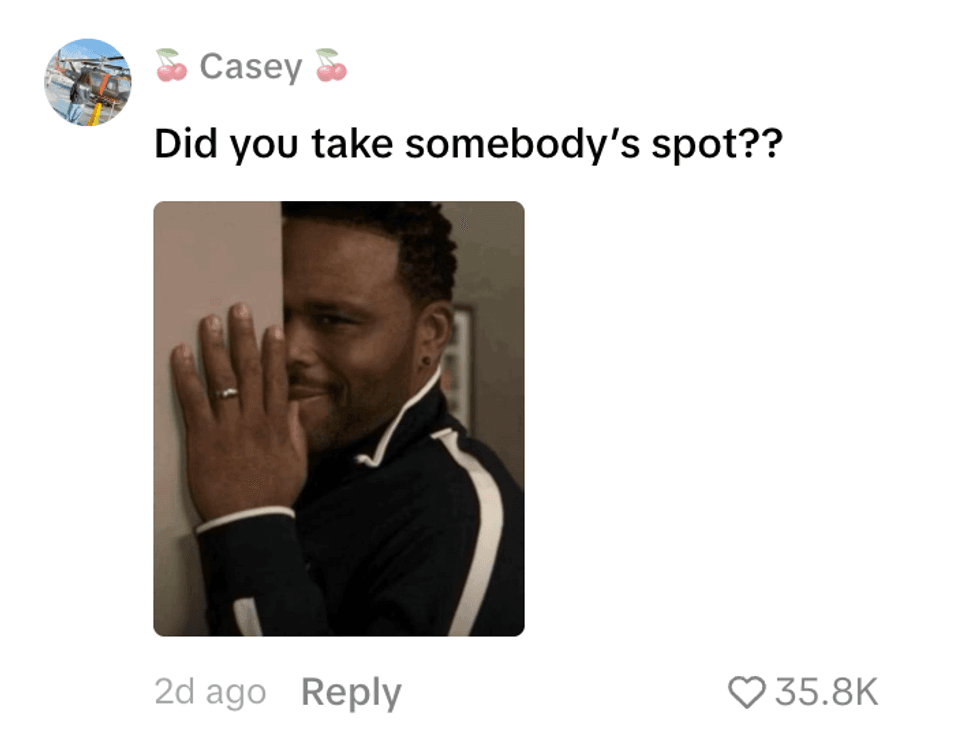 @im.key05/TikTok
@im.key05/TikTok @biontrtwff101/TikTok
@biontrtwff101/TikTok @likebrifr/TikTok
@likebrifr/TikTok @itsashrashel/TikTok
@itsashrashel/TikTok @ur_not_natalie/TikTok
@ur_not_natalie/TikTok @rbaileyrobertson/TikTok
@rbaileyrobertson/TikTok @xo.promisenat20/TikTok
@xo.promisenat20/TikTok @weelittlelandonorris/TikTok
@weelittlelandonorris/TikTok @katiebullit/TikTok
@katiebullit/TikTok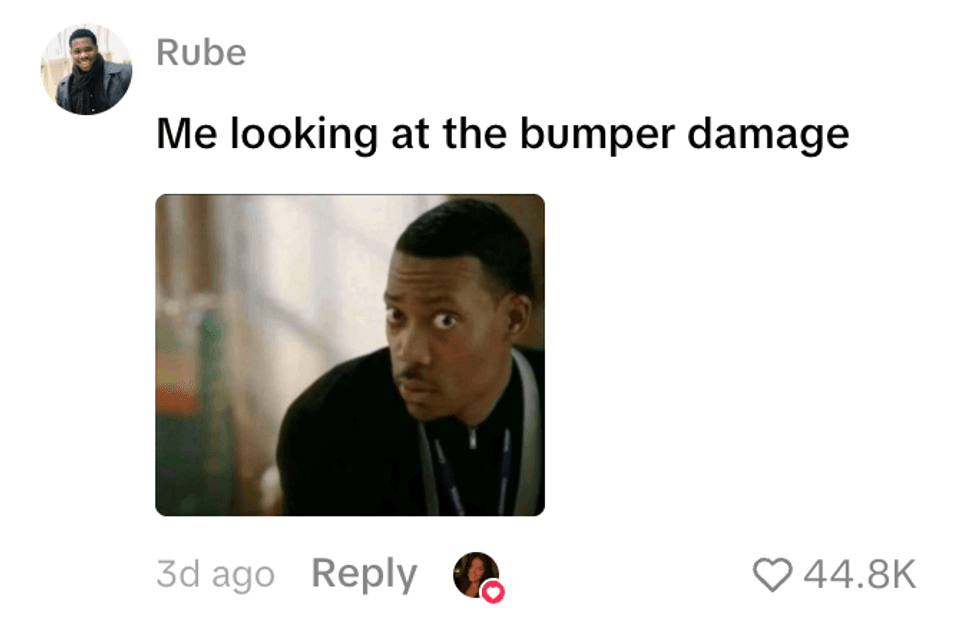 @rube59815/TikTok
@rube59815/TikTok
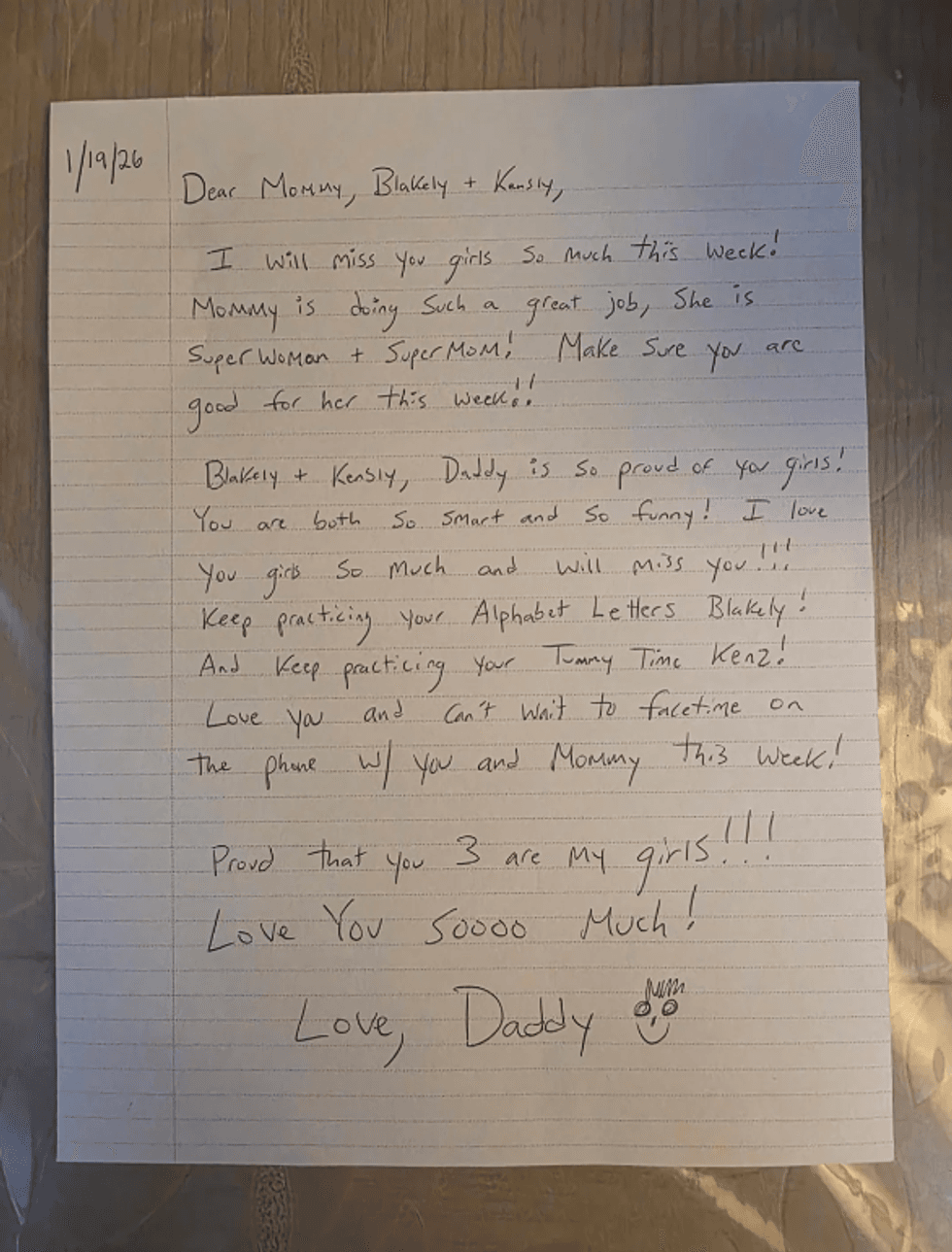 u/Fit_Bowl_7313/Reddit
u/Fit_Bowl_7313/Reddit
 @meteorblades/Bluesky
@meteorblades/Bluesky @bodenkelly/X
@bodenkelly/X